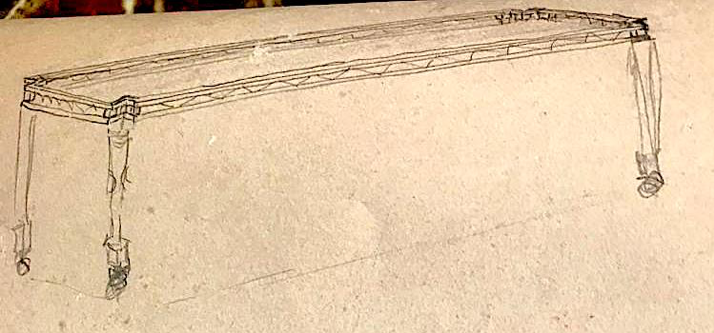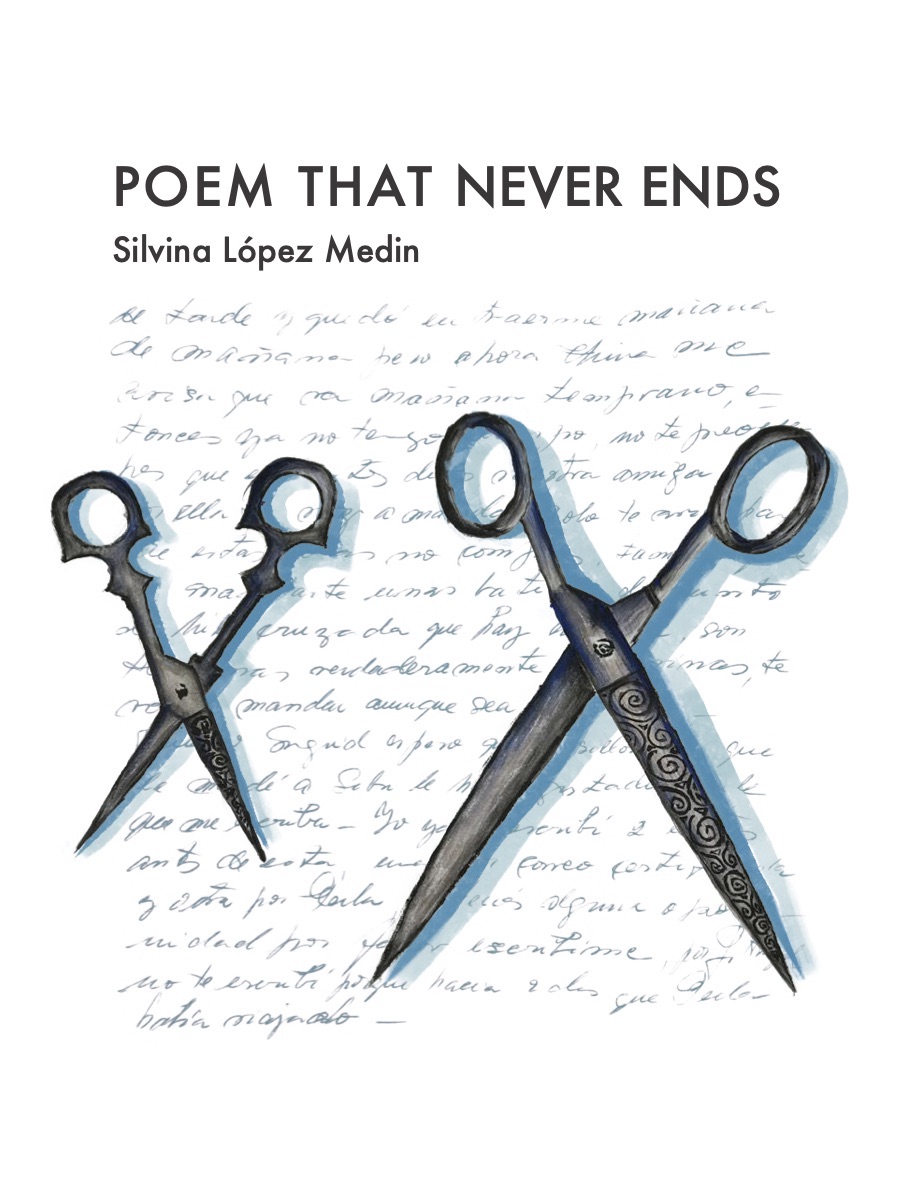It’s in your hands: the weight of the slats. All slightly bent to one side. As someone that bends with their ear towards the other trying to hear more: what? Your grandmother, like your mother, could only hear 30% of all things. You cross out the word grandmother, you’ll say your mother’s mother. You’d rather have the word repeated—mother—build a chain with no missing ring. You’re not pulling yet, but it’s in your hands, the chain that raises the metal slats. You hear what your mother’s mother wouldn’t hear: the slats clattering. She, who used to live between blades—her scissors, silent to her—opening and closing on the cloth. Cutting, cutting until what? Until she reached an edge: a pair of eyes looking at her from the other side of the sewing table. Her daughter. Herself. A table—not flat, not smooth, the top filled with pieces of broken wood. Broken: can stick in your skin. A daughter. A table made of broken things, but varnished, protected. Protective like the blinds you’re not yet pulling. To open and close, to cut until—to look up and see someone. Not knowing what to do with the weight of a stare or the top of the table: sharp points that don’t hurt, but shine, shine, varnished. To separate the cloth just cut into pieces. This is not your daughter, this is not you. And yet, you are a mother, she’s your mother’s mother. You’re pulling.






